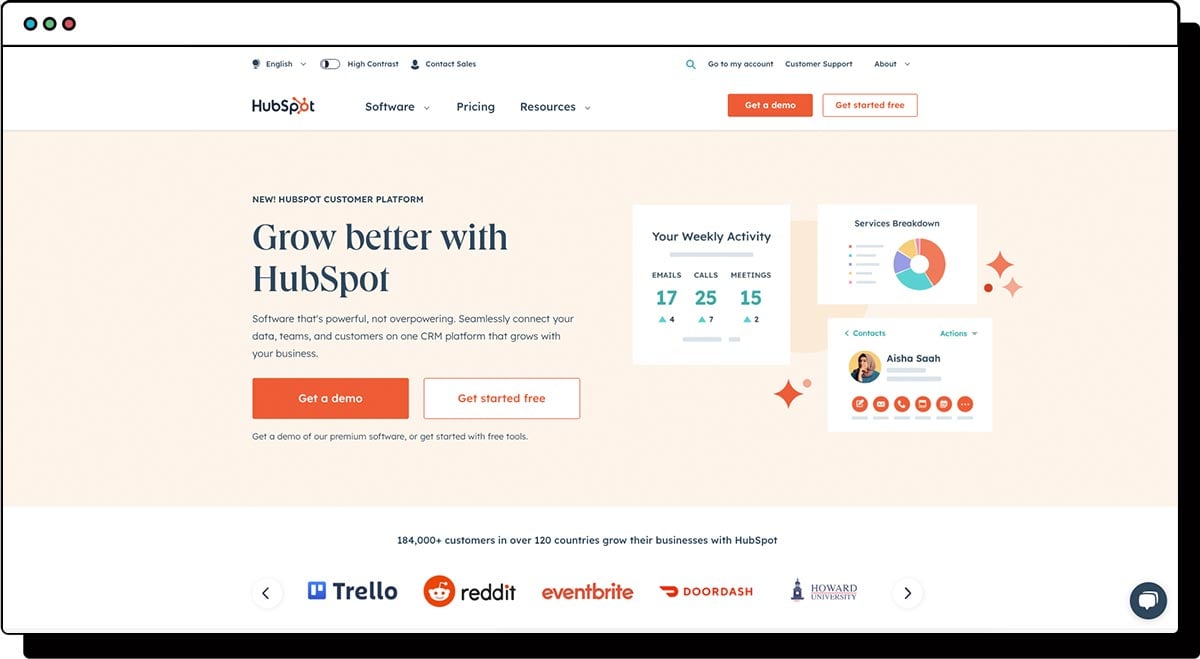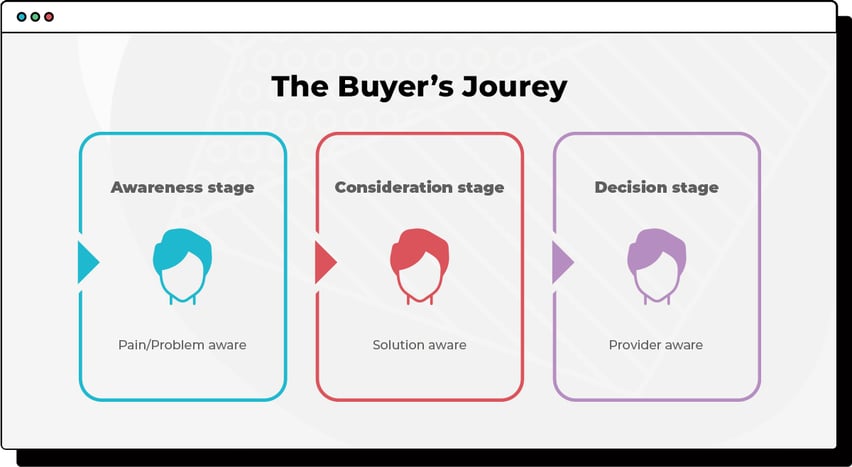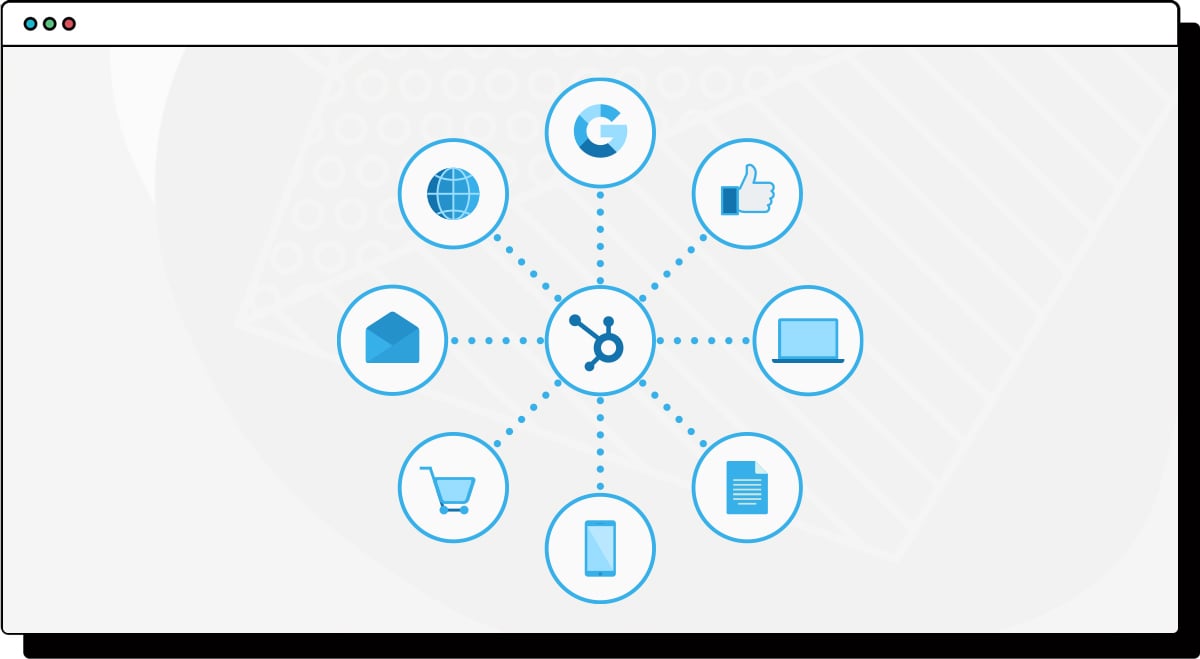In order for businesses to be competitive in an ever-evolving digital landscape, the significance of a well-crafted strategy cannot be overstated. Akin to how a map empowers travellers to navigate unfamiliar territories, a digital marketing strategy equips businesses with a roadmap to navigate the complex online world.
By incorporating various essential elements such as target audience analysis, goal setting, competitor analysis, budget allocation, and defining key performance indicators (KPIs), a well-defined strategy helps to align all marketing efforts towards a common vision, ensuring focused and purposeful actions.
Throughout this article, we’ll explore the multifaceted nature of strategy in digital marketing and highlight the advantages of employing a comprehensive platform like HubSpot to seamlessly integrate and manage various marketing channels. So, let’s delve deeper into the power of strategy and its implementation through HubSpot, as we embark on this insightful exploration of modern marketing practices.

“Strategy without tactics is the slowest route to victory.
Tactics without strategy is the noise before defeat."
- Sun Tzu, Chinese military strategist and philosopher
The Importance of Strategy in Digital Marketing
Having a well-defined strategy is the cornerstone of success. A strategic approach sets the direction, aligns efforts, and empowers businesses to make informed decisions in their pursuit of marketing goals.
Without a clear strategy, businesses often resort to ad hoc marketing initiatives that lack coherence and fail to contribute to a unified vision. This scattergun approach leads to disjointed brand messaging and dilutes the impact of marketing efforts.
A strategy-less marketing approach may result in misallocation of resources, where time and money are spent on campaigns that yield little to no returns. Valuable resources are squandered on ineffective endeavours that do not contribute to overall business objectives.
A well-defined strategy on the other hand helps businesses identify and prioritise marketing initiatives based on their relevance to the overall goals. This ensures that efforts are focused on activities that align with the company's long-term vision, maximising the impact of marketing campaigns.
These businesses can allocate their resources - financial, human, and time - into activities that have the highest potential for success, optimising the return on investment.
An effective strategy sets specific and measurable goals, enabling businesses to track and evaluate the success of their marketing efforts. Key performance indicators (KPIs) are established, allowing for data-driven decision-making and continuous improvement.
A well-crafted digital marketing strategy acts as a compass, guiding businesses through the complexities of the digital landscape. It provides clarity of purpose, a roadmap for execution, and a framework for evaluating progress.

Hear from the Experts: Businesses now and again ask us, "Do we need to do website strategy?" To shed light on this common question, we sat down with Ryan Waters - our Strategist and Solution Architect.
Watch the 2-minute video below to hear his insight:
Leveraging HubSpot for a Holistic Strategy
With its diverse range of technology tools and all-in-one capabilities, HubSpot offers businesses an opportunity to implement a comprehensive and holistic digital marketing strategy. These tools include:
- Inbound Marketing Capabilities
- Content Creation and Management
- Social Media Management
- Email Marketing Automation
- Lead Generation and Nurturing
- Customer Relationship Management (CRM)

"The essence of strategy is choosing what not to do"
- Michael Porter, renowned strategist and professor at Harvard Business School
8 Steps to Creating an Effective Digital Strategy
Creating a successful digital marketing strategy requires careful planning, a deep understanding of your target audience, and a data-driven approach. By combining these elements, businesses can craft a robust and effective digital strategy that maximises their online presence and achieves their marketing goals.
Let's explore the key steps to create a digital strategy with real impact:
Step 1: Define Clear Goals
Start by setting clear and specific goals for your digital marketing efforts. These goals should align with your overall business objectives and be measurable.
Whether it's increasing website traffic, generating leads, improving conversion rates, or enhancing brand awareness, having well-defined goals provides a clear direction for your strategy.

Step 2: Understand Your Target Audience
In-depth knowledge of your target audience is crucial for crafting a successful strategy. Conduct thorough market research and gather insights into your audience's preferences, needs, pain points, and online behaviours. Use this information to create detailed buyer personas that represent your ideal customers.
Step 3: Map the Buyer's Journey
Map out the different stages of your buyer's journey, from awareness to consideration and decision-making. Understand the content and interactions that resonate with prospects at each stage.
Tailor your messaging and marketing efforts to guide prospects smoothly through the buyer's journey, ultimately leading to conversion.

Step 4: Develop Compelling Content
Content is the cornerstone of any digital strategy. Create valuable, relevant, and engaging content that addresses your audience's pain points and provides solutions.
Utilise a mix of formats such as blog posts, videos, infographics, and eBooks to cater to different preferences. Regularly update and optimise your content to keep it fresh and relevant.
Step 5: Embrace Multichannel Marketing
Diversify your marketing efforts by leveraging multiple digital channels. Utilise social media platforms, email marketing, search engine optimisation (SEO), paid advertising, and other channels that align with your audience's preferences.
Ensure consistency in your messaging and branding across all channels.

Step 6: Leverage Marketing Automation
Marketing automation tools, like those offered by HubSpot, can streamline your marketing processes and enhance efficiency.
Automate repetitive tasks such as lead nurturing, email sequences, and follow-up communications. This automation frees up time for your team to focus on high-impact activities.
Step 7: Monitor and Analyse Performance
Regularly monitor the performance of your digital marketing efforts. Use analytics tools to track key metrics, such as website traffic, conversion rates, email open rates, and social media engagement.
Analyse the data to gain insights into what works well and identify areas for improvement.

Step 8: Adapt and Optimise
Stay agile and be ready to adapt your strategy based on performance data and market trends. Continuously test and optimise your campaigns to improve results. A willingness to experiment and embrace change will ensure your strategy remains effective and relevant in the ever-changing digital landscape.
By following these steps and harnessing the capabilities of platforms like HubSpot, businesses can create an effective digital marketing strategy that drives meaningful results. A well-crafted strategy, supported by data-driven insights and tailored to your audience's needs, will position your business for success in the competitive online realm.

Conclusion
Throughout this article, we have explored the critical importance of strategy in digital marketing and how HubSpot, as a comprehensive platform, can serve as a powerful ally in its implementation.
By defining clear goals, conducting thorough market research, understanding buyer personas, and mapping the buyer's journey, businesses can lay the foundation for a successful digital marketing strategy.
HubSpot's technology tools offer an all-in-one solution, empowering businesses to attract, engage, and delight their audience across various channels.
The path to digital marketing success begins with navigating your strategy. By taking these insights along for the journey, businesses can confidently pave the way towards a prosperous future in the digital landscape.
